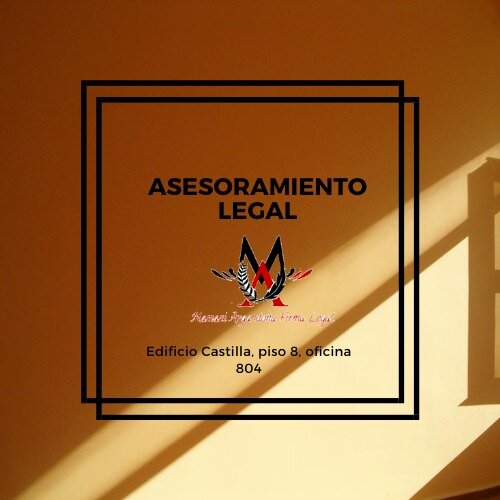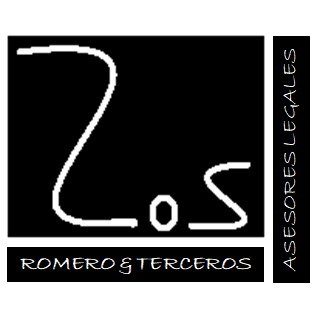Best Structured Finance Lawyers in La Paz
Share your needs with us, get contacted by law firms.
Free. Takes 2 min.
List of the best lawyers in La Paz, Bolivia
About Structured Finance Law in La Paz, Bolivia
Structured finance is a complex area of law and finance that involves the design and management of financial instruments or transactions tailored to meet specific investor and borrower needs while reducing financial risk. In La Paz, Bolivia, structured finance serves as a critical tool for businesses, financial institutions, and investors looking for innovative funding solutions beyond conventional loans or bonds. These transactions often entail securitization, collateralization, syndicated loans, project finance, or the creation of special purpose vehicles (SPVs) to isolate risk. The local legal environment is shaped by both Bolivian national regulation and international best practices, making professional guidance essential when navigating structured finance in the city.
Why You May Need a Lawyer
Engaging with structured finance arrangements without legal support can be risky due to their complexity. Here are some common situations where a lawyer’s assistance is essential:
- Drafting or negotiating structured finance agreements, such as securitization contracts or loan syndications
- Ensuring compliance with Bolivian financial regulations and Central Bank requirements
- Advising on cross-border transactions involving foreign investors or entities
- Setting up special purpose vehicles (SPVs) for risk isolation
- Dispute resolution or litigation concerning structured finance transactions
- Understanding tax implications of complex financial deals
- Structuring project finance for large-scale infrastructure or energy projects
- Conducting legal due diligence for both borrowers and lenders
Legal professionals with experience in structured finance can help protect your interests, ensure regulatory compliance, and prevent costly errors.
Local Laws Overview
Bolivia, including La Paz, is governed by a combination of national legislation and regulatory bodies overseeing finance. Key points include:
- The Bolivian Financial System Law regulates local banks and financial institutions and sets forth rules for sophisticated financial transactions
- Securitization is permitted under Bolivian law, but subject to requirements outlined by the Autoridad de Supervisión del Sistema Financiero (ASFI)
- The use and management of special purpose vehicles must comply with registry and reporting mandates
- Cross-border transactions may require notification to the Central Bank of Bolivia and adherence to foreign exchange control regulations
- Tax laws related to structured finance often involve VAT, capital gains, and withholding taxes which must be carefully analyzed
- Anti-money laundering and anti-fraud laws apply to all structured finance products
- Registration of collateral and secured interests is mandatory for asset-backed arrangements
- Project finance for public infrastructure may need government approval or public-private partnership (PPP) compliance
Due to the evolving nature of finance laws in Bolivia, legal advice is crucial to ensure that your transaction adheres to the latest regulatory standards in La Paz.
Frequently Asked Questions
What is structured finance, and how does it differ from traditional finance?
Structured finance involves complex, tailor-made financial instruments or arrangements that differ from traditional loans or bonds by addressing unique financial needs and distributing risk through mechanisms like securitization and SPVs.
Can foreign investors participate in structured finance deals in La Paz?
Yes, but foreign investors must comply with local regulations, foreign exchange controls, and reporting requirements when engaging in structured finance transactions in Bolivia.
What legal structures are common in Bolivian structured finance?
The most common structures include securitization trusts, project finance agreements, syndicated loans, and special purpose vehicles (SPVs) set up for risk management.
Are there specific regulatory bodies overseeing structured finance activities?
Yes, the Autoridad de Supervisión del Sistema Financiero (ASFI) and the Central Bank of Bolivia supervise financial institutions and transactions, including those involving structured finance.
Do structured finance transactions need to be registered with authorities?
Yes, depending on the type of transaction, registration with ASFI, the Registry of Commerce, and possibly the tax authorities is required.
What are the tax implications of structured finance transactions?
Structured finance deals may be subject to VAT, income tax, and withholding taxes. Proper structuring is essential to avoid unexpected tax liabilities.
How do anti-money laundering (AML) requirements affect structured finance in La Paz?
Banks and financial institutions must follow strict AML procedures, including due diligence, reporting, and transaction monitoring, to prevent illicit activity.
Can individuals set up special purpose vehicles in Bolivia?
Yes, but SPVs must comply with Bolivian company law, registration requirements, and operational transparency as overseen by regulatory authorities.
What risks should be considered before entering into a structured finance deal?
Key risks include counterparty default, regulatory changes, tax liabilities, operational complexities, and legal disputes arising from poorly drafted contracts.
When should I consult a structured finance lawyer in La Paz?
You should seek legal advice at the earliest stage of planning a structured finance transaction to ensure sound structuring, legal compliance, and protection of your interests.
Additional Resources
If you need more information or official guidance about structured finance in La Paz, consider the following resources:
- Autoridad de Supervisión del Sistema Financiero (ASFI) - The main financial regulatory authority
- Central Bank of Bolivia (Banco Central de Bolivia) - For foreign exchange and cross-border finance rules
- Bolivian Ministry of Economy and Public Finance - For public sector project finance guidance
- Bolivian Bar Association - For legal referrals specializing in finance law
- La Paz Chamber of Commerce - For business and investor support services
Next Steps
If you are considering a structured finance transaction in La Paz or need advice on a specific aspect, take the following steps:
- Identify your objectives and gather relevant financial and corporate documentation
- Consult with a lawyer experienced in structured finance and Bolivian law
- Assess potential risks and compliance requirements with your advisor
- Ensure all agreements and structures are professionally drafted and reviewed
- Register necessary entities or transactions with local authorities as required
- Maintain clear communication with all stakeholders throughout the process
Legal expertise is invaluable for navigating the intricate landscape of structured finance in La Paz, Bolivia, ensuring your interests and investments are safeguarded.
Lawzana helps you find the best lawyers and law firms in La Paz through a curated and pre-screened list of qualified legal professionals. Our platform offers rankings and detailed profiles of attorneys and law firms, allowing you to compare based on practice areas, including Structured Finance, experience, and client feedback.
Each profile includes a description of the firm's areas of practice, client reviews, team members and partners, year of establishment, spoken languages, office locations, contact information, social media presence, and any published articles or resources. Most firms on our platform speak English and are experienced in both local and international legal matters.
Get a quote from top-rated law firms in La Paz, Bolivia — quickly, securely, and without unnecessary hassle.
Disclaimer:
The information provided on this page is for general informational purposes only and does not constitute legal advice. While we strive to ensure the accuracy and relevance of the content, legal information may change over time, and interpretations of the law can vary. You should always consult with a qualified legal professional for advice specific to your situation.
We disclaim all liability for actions taken or not taken based on the content of this page. If you believe any information is incorrect or outdated, please contact us, and we will review and update it where appropriate.










